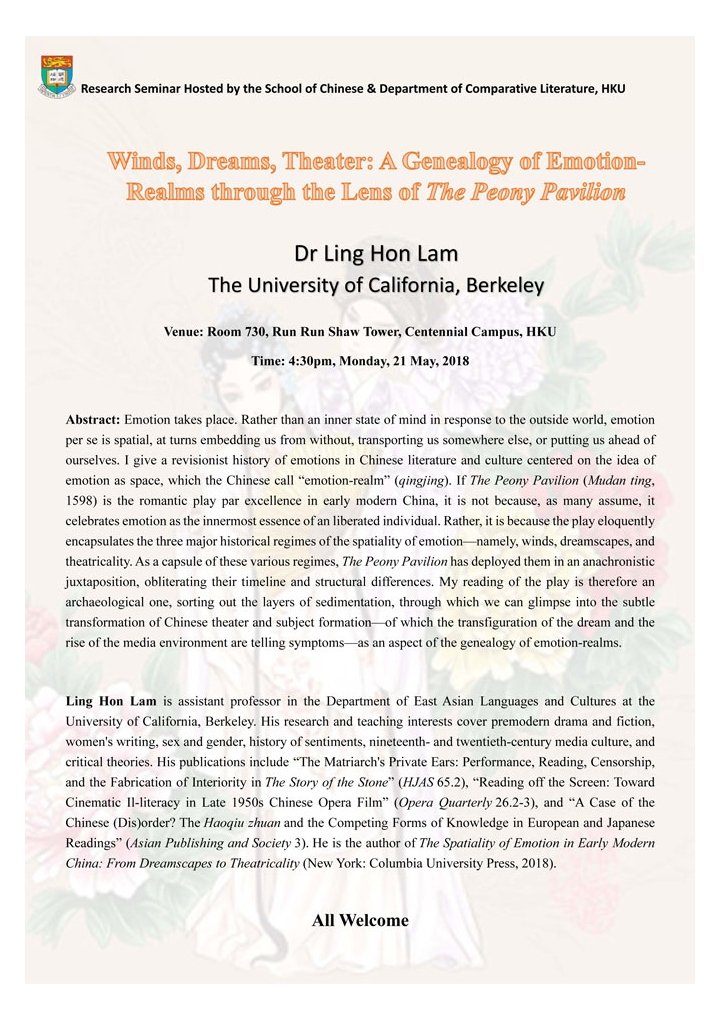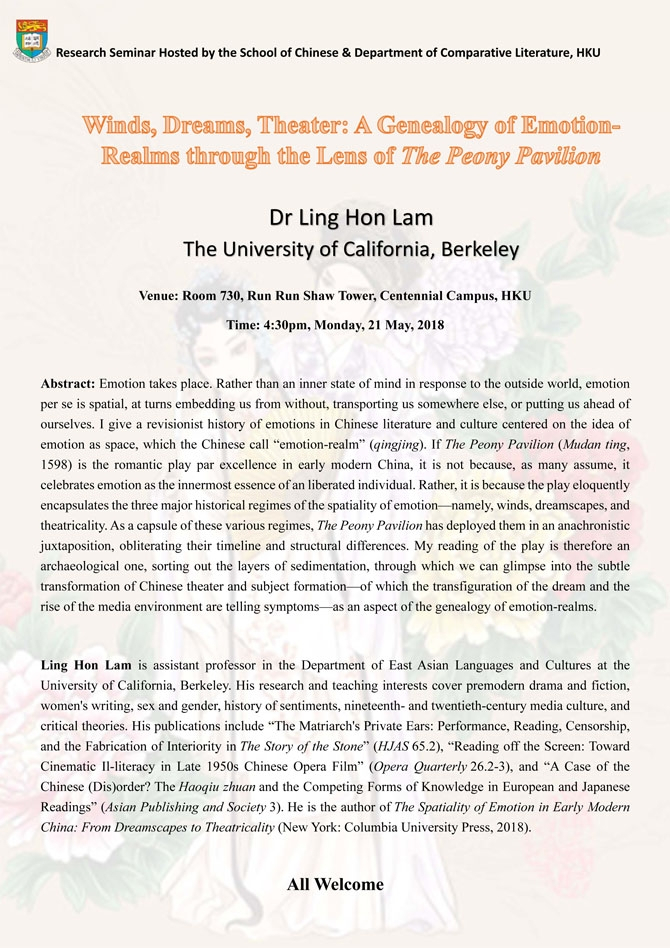Winds, Dreams, Theater: A Genealogy of Emotion-Realms through the Lens of The Peony Pavilion

Research Seminar Hosted by the School of Chinese & Department of Comparative Literature, HKU
Winds, Dreams, Theater: A Genealogy of Emotion-Realms through the Lens of The Peony Pavilion
Dr Ling Hon Lam
The University of California, Berkeley
Venue: Room 730, Run Run Shaw Tower, Centennial Campus, HKU
Time: 4:30pm, Monday, 21 May, 2018
Abstract: Emotion takes place. Rather than an inner state of mind in response to the outside world, emotion per se is spatial, at turns embedding us from without, transporting us somewhere else, or putting us ahead of ourselves. I give a revisionist history of emotions in Chinese literature and culture centered on the idea of emotion as space, which the Chinese call “emotion-realm” (qingjing). If The Peony Pavilion (Mudan ting, 1598) is the romantic play par excellence in early modern China, it is not because, as many assume, it celebrates emotion as the innermost essence of an liberated individual. Rather, it is because the play eloquently encapsulates the three major historical regimes of the spatiality of emotion—namely, winds, dreamscapes, and theatricality. As a capsule of these various regimes, The Peony Pavilion has deployed them in an anachronistic juxtaposition, obliterating their timeline and structural differences. My reading of the play is therefore an archaeological one, sorting out the layers of sedimentation, through which we can glimpse into the subtle transformation of Chinese theater and subject formation—of which the transfiguration of the dream and the rise of the media environment are telling symptoms—as an aspect of the genealogy of emotion-realms.
Ling Hon Lam is assistant professor in the Department of East Asian Languages and Cultures at the University of California, Berkeley. His research and teaching interests cover premodern drama and fiction, women’s writing, sex and gender, history of sentiments, nineteenth- and twentieth-century media culture, and critical theories. His publications include “The Matriarch’s Private Ears: Performance, Reading, Censorship, and the Fabrication of Interiority in The Story of the Stone” (HJAS 65.2), “Reading off the Screen: Toward Cinematic Il-literacy in Late 1950s Chinese Opera Film” (Opera Quarterly 26.2-3), and “A Case of the Chinese (Dis)order? The Haoqiu zhuanand the Competing Forms of Knowledge in European and Japanese Readings” (Asian Publishing and Society 3). He is the author of The Spatiality of Emotion in Early Modern China: From Dreamscapes to Theatricality (New York: Columbia University Press, 2018).
All Welcome

Poster:
http://web.chinese.hku.hk/poster/20180521.pdf
http://www.hku.hk/chinese








